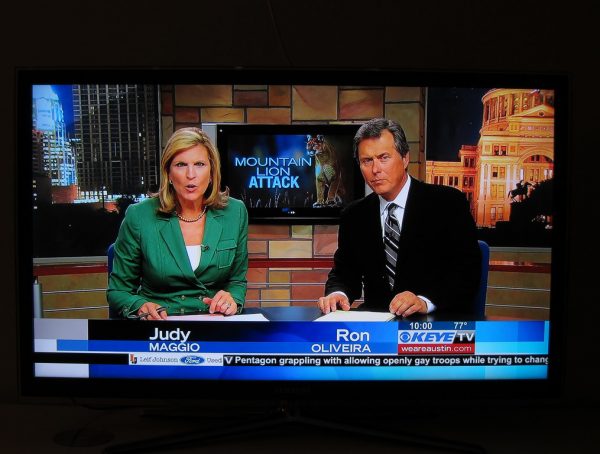All leaders have power and all leaders exercise their power for either good or bad. This is especially true in a crisis, when a leader’s use of power can have a profound effect on the future of an organization. Done right, effective leadership during a crisis can produce a long-term competitive advantage. On the other hand, unskilled, or self-centered leadership can damage an organization for years to come. Nowhere are these facts truer than in television stations during today’s troubled times. Here are 4 Keys to Leading through Crisis:
- Accept the Business Imperative, but…
We know that businesses exist to create profit for shareholders, but in local TV, we believe our obligation to public responsibility makes ours a higher calling than just profit. However, the fact remains that no business can fund good jobs without also producing a profit. Why have newspapers gutted their staffs, stopped printing some days and even ceased operation? Because they no longer have the ability to make money.
- Value Your Employees
Not only is profit essential to an organization’s success, it cannot exist on a long-term basis without corresponding employee success. High achieving organizations are always marked by highly motivated, highly successful employees. A motivated workforce is more important than any strategic or operating plan, more important than other resources, more important than almost anything else. People are always the essential element of success.
Creating a motivating a workforce is more complex than we can go into here, but the base element is effective leadership. Great leaders understand they must use their power to motivate employees while also balancing the various other needs of their organization. At no time is the successful use of that power more important than during a crisis.
- Get Real
Leadership must also be authentic. A television station general manager who says news is more important than anything else, yet shortchanges essential crisis coverage to save money, is seen as a liar. A general manager who says employee safety comes first, yet does not provide effective security during a crisis, is also seen as a liar. The inevitable result is employee demotivation, resulting in eventual loss of profit.
I was speaking with a GM last week who told me, “I spent $100,000 that we did not have on security last month. I expect to spend the same this month. Advertising is in the tank, so profit is going to look terrible.” Notice what the GM did not say. There was no regret at spending the money. It was simply an unplanned expense. He hated losing monthly profit, but that was put in context as a disappointing fact. It did not occur to him to not protect employees.
Another GM told me his company has discouraged general managers from going into their stations due to COVID-19. “I couldn’t do that,” he said. “Our people were being attacked in the streets. I had to show up in the newsroom, not sit safely in my den.”
Employees will accept temporary hardship when they believe their leader is doing her or his best to be fair and reasonable. There is no way to fake this, because employees are also very smart. Authenticity always comes out.
- Focus on the Future
The first rule of crisis leadership is to concentrate on the long-term. Short-term profit at the expense of employees can destroy an organization’s ability to create future success. Short-term thinking always leads to long-term problems.
The best leaders understand that attempting to achieve short-term business goals at the expense of employees during a crisis will make it incredibly difficult to achieve success after the crisis has ended. Far better to take the long view. Attempts to salvage short-term profit can lead to a damaged organization, creating much deeper profit problems down the line.
The most important thing to understand about the power of leadership is that it is never neutral. Great leaders produce great results. Unskilled leaders will also, on occasion, produce good results, but never for the long term.
At the end of the current crises, some television stations will have created a competitive advantage going forward. Others will find themselves weaker than before. The difference will be how their leaders are functioning right now.

Hank Price is a veteran media executive, educator and author of Leading Local Television (BPP, 2018) and co-author of Managing Today’s News Media: Audience First (Sage, 2015) a management textbook. He is a frequent speaker to television industry groups about the future of media. He currently serves as Director of Leadership Development for the School of Journalism and New Media at Ole Miss. During a 30-year career as a television general manager, Priced specialized in turnarounds, leading television stations for Hearst, CBS and Gannett. During this time, he became known for turning traditional businesses into multi-platform brands. Simultaneously, he spent 15 years as senior director of Northwestern University’s Media Management Center, teaching in both the domestic and international executive education programs.








